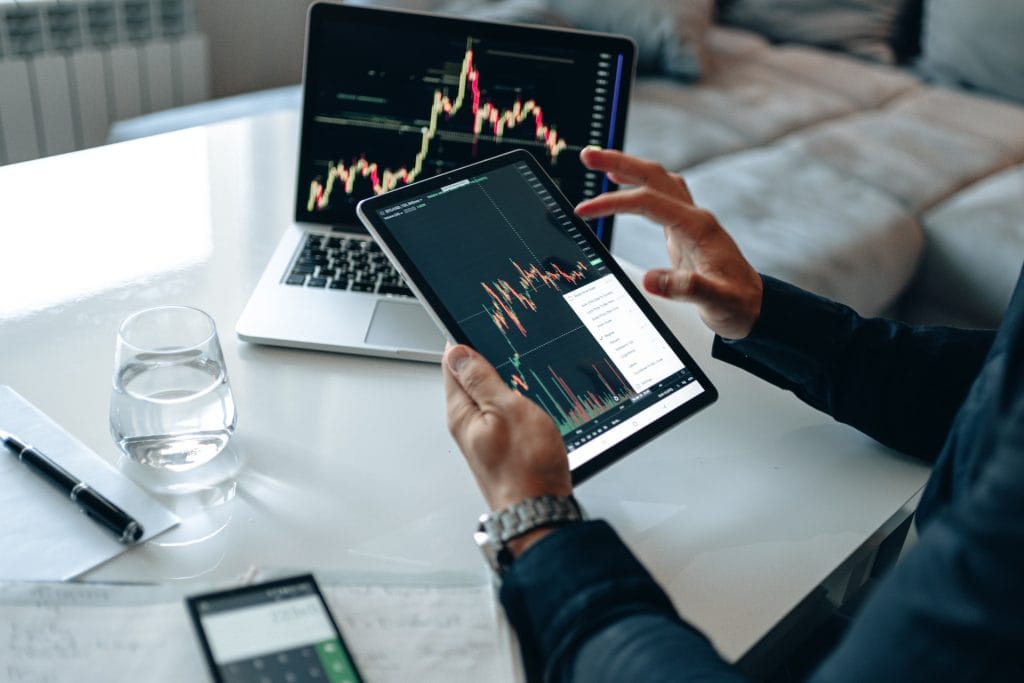What to Consider When Trading CFDs
Did you know you can invest in gold without necessarily buying physical gold? You can opt to trade gold CFDs instead of going through the hassles of investing in physical gold.According to finder.com In 2020, interest from CFD trading grew by 193%. These massive returns appeal to many investors making CFDs popular.
For starters, Contract for Difference (CFD) involves speculating on a price of a derivative of a financial instrument. The underlying financial instrument can be forex, stocks, indices, and commodities. You can therefore trade CFDs of oil, coffee, S&P, and currency pairs like USDCAD. Essentially, you do not have physical possession of assets but trade on a contract that simulates their price movement. Your profit is the price difference whether the price goes up or down.
Understand How to Go Long Or Short
Trading CFD differs from conventional trading, where profits are premised on increasing the asset's value. The trader and the broker enter a contract to exchange the value of the financial instrument between when the contract opens and when it lapses. Put differently, you make a bet on whether the price of the underlying asset will rise or fall. The gain from the difference is settled in the investor's brokerage account.
If you open a long position (buy) and the price rises, you gain from the net difference between buying and selling price. But if the price declines, you record a loss. Similarly, if you go short (sell) and the value falls, you may make a profit by buying the asset back at a lower price than what you originally bought it for.
The process of making profits starts from a financial analysis of the instrument by evaluating fundamentals such as inflation rates, unemployment statistics, and interest rates. The trades run concurrently and within the trading hours of the underlying instrument. Unlike options, CFDs have no expiry, but you might incur an overnight charge.
Broker’s Reputation
A smooth trading experience starts by vetting and choosing the most suitable trading platform. A poor choice can result in a disappointing experience.
Here are the top features that make a trading platform ideal.
- Licensed and regulated by top regulators
- A suite of trading tools
- Myriad trading instrument
- Real-time updates of prices and supports fast execution
- It should offer leverage and margin
In addition, good customer support and security protocols set apart a good brokerage firm from the rest. CMC Markets is a quintessential trading platform for CFD trading. Learn more about CFD trading on CMC Markets.
 Remember, CFD trading has its inherent trading risk. Therefore, a broker who promises guaranteed returns is a fraud. The volatile nature of CFD trading can make it challenging to predict the price movement. Adding leverage into the picture makes guaranteed returns quite a challenge.
Remember, CFD trading has its inherent trading risk. Therefore, a broker who promises guaranteed returns is a fraud. The volatile nature of CFD trading can make it challenging to predict the price movement. Adding leverage into the picture makes guaranteed returns quite a challenge.Regulations Within Your Jurisdiction
Before you start trading, ensure CFDs are allowed in your area. For instance, CFD trading in the US is restricted. It is one of the biggest economies that curtails this trading. However, CFD trading is allowed in Switzerland, Germany, South Africa, Hong Kong, the UK, and France, among other countries.
Some countries are tightening their trading regulations. For instance, In Australia, ASIC has reduced the leverage to protect consumers. The new changes which came into effect in March 2021 target sales promotions and product features that amplify traders' losses.
Risks and Costs
The major risks of CFD trading are margin requirements, leverage, and liquidity. The good news is that the brokers have stop-loss limits to help you protect your capital against sharp price movements.
Spreads
CFD has a spread which is the cost of opening the position. The spread is the difference between the bid and the ask price. The bid price is the highest price the investor is willing to buy an asset, while the ask price is the lowest price the trader is willing to sell a financial instrument. Ideal platforms offer tight spreads which start from zero.
Conclusion
CFD trading means you don’t need to buy financial instruments in the market. You speculate on their price movement. This means you make a profit or loss whether the price rises or falls. Spread bets and CFDs are complex instruments and come with a high risk of losing money rapidly due to leverage. The vast majority of retail client accounts lose money when spread betting and/or trading CFDs. You should consider whether you understand how spread bets and CFDs work and whether you can afford to take the high risk of losing your money.
Top-Tier Trusted Brokers
The table below contains links to 3rd party websites of our top partners from whom we receive compensation at no additional cost to you.

























